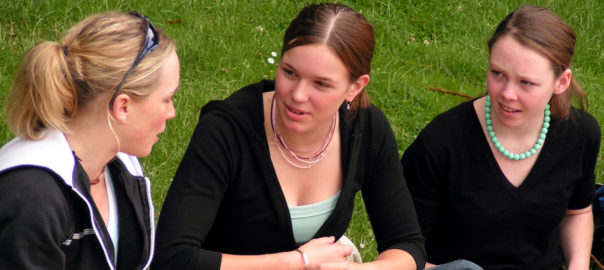If you don’t want to get pregnant – naturally
Natural fertility for contraception has been used in one form or another for many hundreds of years and is the most widely used form of family planning throughout the world.
“The modern, scientifically based Sympto-Thermal Method (STM) is taught to many Kiwi women (and their partners) and allows women to have a non-invasive, natural choice which doesn’t require pill taking while still remaining highly effective, at least 98 per cent effective, the same stats as the mini-pill,” explains Robyn Fausett, an accredited educator with Natural Fertility NZ (formerly known as the Natural Family Planning Association).
What is it?
The STM is the practice of observing your body, understanding its changes and knowing when you are fertile and when you are not.
According to NFNZ’s data approximately 50 per cent of women use this knowledge to increase their chances of conception and 50 per cent use it as a natural form of contraception.
It can be used by women at any stage of their reproductive life before or after having your babies, after stopping the contraceptive pill or hormonal injection, or peri-menopausal women and it does not depend on a regular cycle.
In simple terms, using the method as a contraceptive method involves determining the few days out of a woman’s menstrual cycles when conception can occur (also known as the Leutal phase- see our ovulation calander for more) and then avoiding sexual intercourse on those days.
This method involves determining this fertile time in two ways: based on a woman’s basal body temperature (it rises after ovulation) and by recording other fertility cues (such as mood and cervical secretions).
The name “sympto-thermal” method comes from body cues (i.e. symptoms) and a woman’s temperature (i.e. thermal or thermometer).
Is it for me?
NFNZ Educators regularly see couples through their clinics who have decided to learn STM as a way of avoiding pregnancy.
“Some clients are unable to use other methods of contraception for varying reasons and others want to utilise natural methods of healthcare and lifestyle whenever possible,” says Fausett.
“It seems more and more people want to take a ‘natural’ approach to their lifestyle and the modernized, evidence based and effective STM allows for this.”
Learning (STM) assists those who want to:
- Use it as a method to avoid pregnancy at all stages of their reproductive life.
- Fulfil a personal desire for a natural lifestyle.
- Find a reliable option after receiving medical advice to avoid other forms of contraception.
- Women near menopause who wish to observe their level of fertility and use as an avoidance of pregnancy.
- When you do want to get pregnant – naturally
Learning STM can also help if you are trying to get pregnant.
One in six couples in New Zealand have issues in achieving pregnancy. In this case the STM can be used to increase fertility awareness to maximise chances of conception each month.
“Learning about what your body does naturally throughout your unique cycle can also assist in revealing potential fertility problems,” says Fausett.
Even if there are particular fertility issues you are battling with, you can time intercourse to maximise the chances of falling pregnant, even where:
- Where a sperm count is low but otherwise normal.
- Timing post endometriosis or polycystic ovary surgery.
- Advancing biological clock.
- Couples separated due to work commitments (i.e., service personnel such as army and navy, Airline personnel; athletes; shift workers, sales representatives with large areas to travel).
- Assist in timing inseminations.
“Rather than stressing out over potential issues, if a woman is aware of her fertility the couple are much more likely to be able to maximise their chances of conception in terms of correct timing of intercourse for her unique cycle and STM will also alert them of any problem much sooner,” says Fausett.
“For couples, knowing how they can maximise their chances of achieving pregnancy puts them back in control and for many couples that decreases their stress levels. The quest for a baby doesn’t have to be so stressful that all the fun goes out of lovemaking!”
Whether it be for conception or contraception Fausett recommends couples learn STM with the assistance of a qualified educator.
This generally takes three appointments over two to three months and many educators provide ongoing advice and support for a year.
What is “natural fertility”?
NFNZ has been around in New Zealand for almost 40 years. The organisation’s primary role as the Natural Family Planning Association in 1974 was to provide information and teaching about natural family planning in New Zealand.
Founded in the wake of worldwide advances in physiological and scientific knowledge about fertility and the menstrual cycle, the method was quickly adopted by couples throughout the country, with educators in almost every city and town.
The Natural Family Planning Association (as it was known then) received government funding through the Department of Health for the training of educators in natural family planning (1980), for payment of educators (1982), and for educators working in schools and with other community groups (1983).
Although this was initially for teaching individual couples fertility awareness and natural family planning, services have been developed in response to expressed needs.
Since then requests have come from health professionals, schools and community groups for educators to teach in the areas of fertility and sexuality.
“In 2002 Natural Family Planning Inc carried out a re-branding exercise and changed its name to Natural Fertility NZ Inc to better reflect the services we now provide,” explains Robyn Fausett, a NFNZ Accredited Educator.
In 2011 NFNZ began the process of changing from an organisation who employed its educators, to a national association that educators belong to.
Who are these “fertility educators”?
The accredited fertility educators generally come from a medical or health professional background and (in addition to their existing qualification of nurse, midwife, doctor, naturopath, etc) they undergo a theory and practical training course which takes six to 12 months.
This is then followed by a period of supervision before they are accredited as fertility educators with NFNZ.
All educators undergo a regular full clinical audit and are re-accredited to NFNZ annually.
They hold clinics and provide home visits in most main centres throughout New Zealand and many also provide distance education (online or via Skype) nationally and internationally for those clients living outside of serviced areas.
Group education is also provided throughout much of New Zealand. Some of the educators provide puberty education through schools between years five and eight and fertility awareness programmes for years10 to 13.
NZNF will be launching their new website in mid-December for more information.
– © Fairfax NZ News


